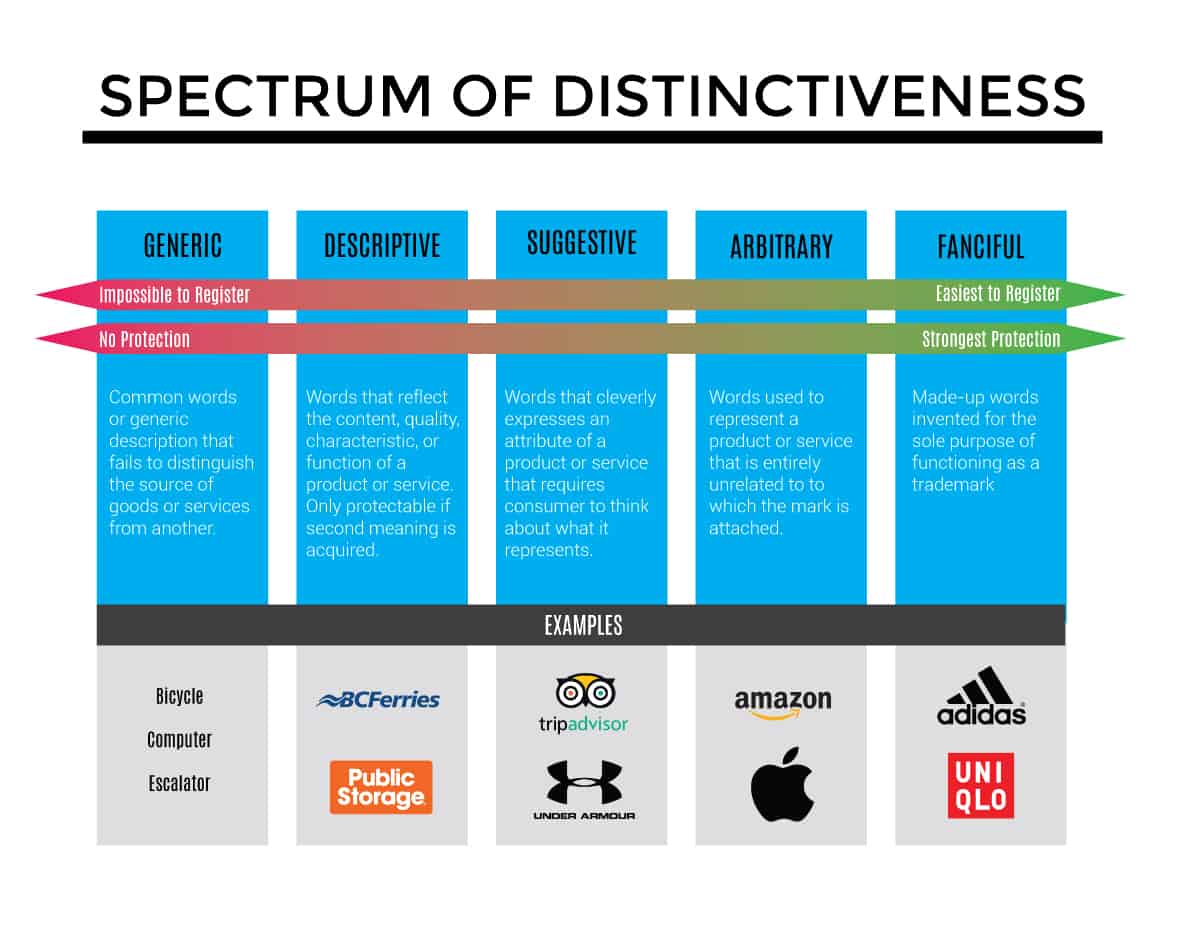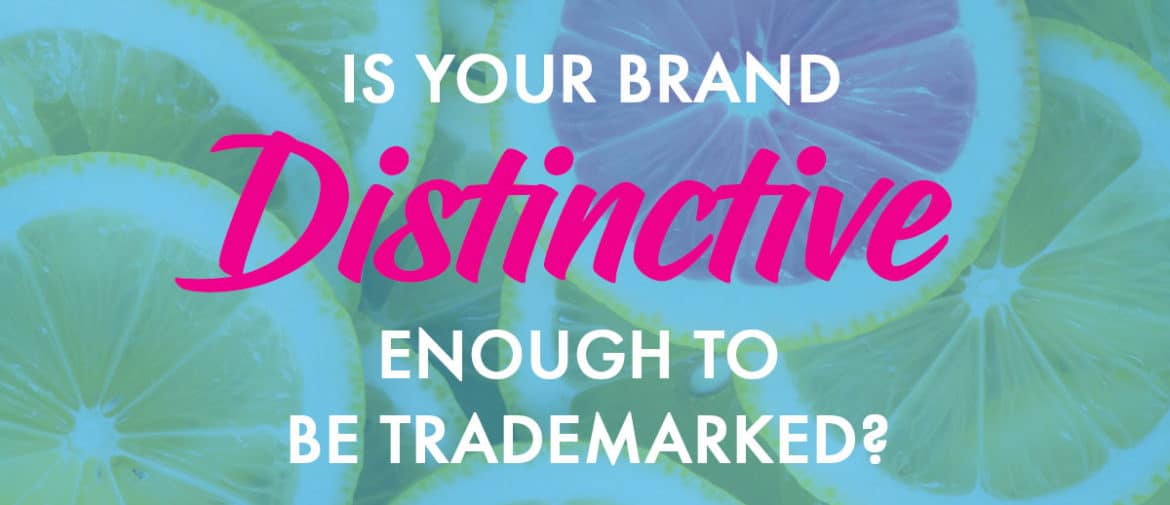Last updated on June 29th, 2022 at 12:28 pm
In the WIPO IP Facts and Figures 2021 report, there were over 64.4 million active trademark registrations around the world.
The truth is, however, a percentage of these trademark applications will not be eligible for registration approval.
Why?
A major reason for failure of a trademark application is because the trademark examiner has determined that a proposed mark does not contain enough unique characteristics to distinguish itself from other pending or registered marks.
Whether you are creating a new company name, logo, or slogan, it is important to understand the following: what makes a trademark distinctive, if there are criteria to measure distinctiveness, and how to create distinctive trademarks to enhance the registrability and protection of your brand.
What is Trademark “Distinctiveness”?
Definition: Trademark distinctiveness refers to the unique elements of a mark that identifies the source of products and/or services from other producers of similar goods and/or services.
Trademark distinctiveness will determine several outcomes:
- The mark’s registrability
- The mark’s scope of legal protection
- The mark’s enforceability
- The mark’s validity after registration
When is a Trademark Considered Distinctive?
Trademarks are considered distinctive when:
- The mark is directly associated with a product or service;
- The associated mark is used in conjunction with the production, promotion, and sale of a product or service; and
- The association clearly identifies the source of goods or services from other traders
How is Distinctiveness Measured?
A recent change to Canada’s trademark laws has granted the Registrar of Trademarks the authority to reject applications it deems not meeting distinctiveness requirements.
The burden of proof is on the applicant to provide strong evidence that the mark has acquired distinctiveness or has inherent distinctiveness, and has achieved secondary meaning across Canada in the minds of the public.
The Canadian Intellectual Property Office (CIPO) has signalled that consumer perception could be demonstrated with evidence such as:
- consumer reviews/testimonials referencing the mark
- brand interactions on social media platforms that shows consumers referring to the mark as a trademark
So, is there a way we can measure distinctiveness?
Spectrum of Distinctiveness
The Abercrombie Spectrum is a commonly referenced guide that divides distinctiveness of trademarks into 5 hierarchical categories.
The following graphic visually represents levels of distinctiveness in relation to the strength of trademark protection it can receive.

Both arbitrary and fanciful trademarks offer the highest degree of distinctiveness and the easiest type of trademarks to register.
How Do I Create a Distinctive Brand for My Business?
In Arek Dvornechuck’s “How to Choose a Good Brand Name” blog post, the branding expert writes,
“Your brand name is your story distilled to its shortest form.”
Communicating your brand’s story through a single name or logo can be a difficult and lengthy process.
Whether you decide to hire professional help or do it yourself, there are many resources that can assist you with creating distinctive trademarkable assets:
- Boutique or full service branding agencies
- Many local agencies can be found through a simple Google search. Although hiring a branding agency can be expensive, they offer budget flexibility depending on your needs.
- Freelance logo/graphic designers
- Crowd-design sites
- Business name generator sites
- Brainstorming session ideas
The above list will be updated periodically in the future to include additional resources.
List last updated: March 16, 2022
Trademark Distinctiveness is Vital to Brand Success
Your brand is the face of your business. Its value is built upon every interaction you have with staff, vendors, partners, consumers, and the general public.
A trademark may become the most valuable asset that your business owns, but its protection can only be maximized if it is distinctive.
Have you recently created a new brand name or logo and still unsure if it’s distinctive enough to be trademarked?
Please feel free to reach out to us and speak to one of our trademark lawyers directly at Patrola Law: (778) 565-4700
The preceding content is for informational purposes only and does not constitute legal or professional advice. To obtain such advice, please contact our offices directly.

